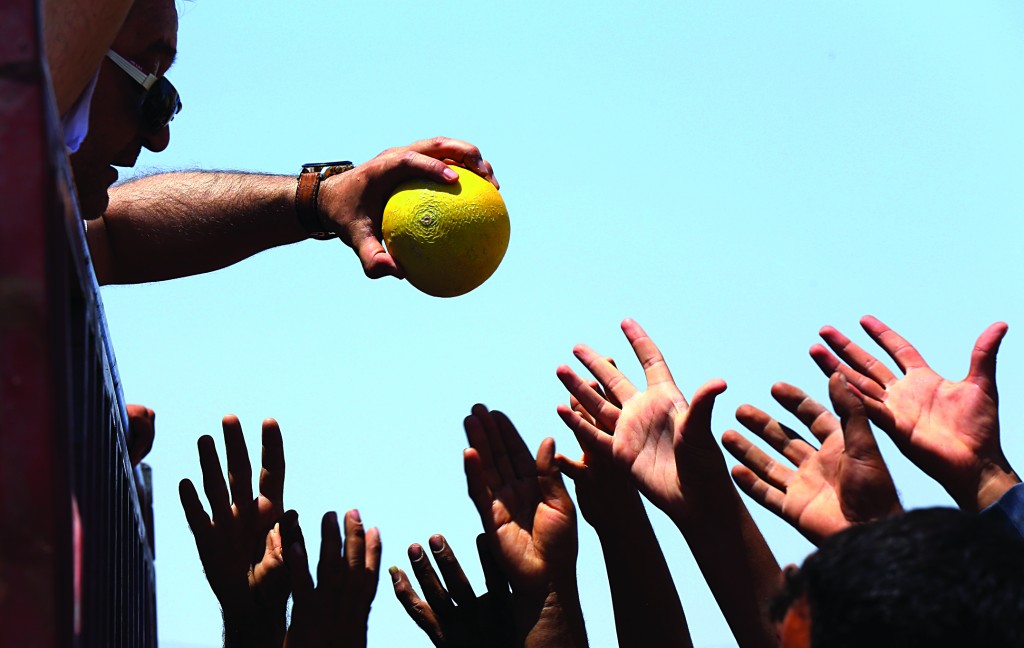Iran’s General In Iraq; Terrorists Seize Key City

In a sign of Iran’s deepening involvement in the Iraqi crisis, the commander of Tehran’s elite Quds Force is helping Iraq’s military and Shiite militias gear up to fight the Sunni insurgents who have advanced across the country, officials said Monday.
Iranian Gen. Ghasem Soleimani has been consulting in Iraq on how to roll back the al-Qaida-breakaway group, known as the Islamic State of Iraq and the Levant, according to Iraqi security officials.
In its latest success, the group Monday seized the strategic city of Tal Afar near the Syrian border, part of its goal of linking areas
under its control on both sides of the Iraq-Syria frontier. West of Baghdad, an army helicopter was shot down during clashes near the
city of Fallujah, killing the aircraft’s two-man crew, security officials said.
Soleimani’s presence is likely to fuel longtime Sunni suspicions about the Shiite-led government’s close ties with Tehran.
In a further dramatic shift unthinkable only weeks ago, Washington says it is willing to talk with Tehran on turning back the insurgents’ advance after years of trying to limit Iran’s influence in Baghdad.
The security officials said the U.S. government was notified before Soleimani’s visit.
Soleimani has been inspecting Iraqi defenses and reviewing plans with top commanders and Iranian-backed Iraqi Shiite militias, the officials said. He has set up an operations room to coordinate the militias.
Soleimani’s visit adds significantly to the sectarian slant of the mobilization by the government of Prime Minister Nouri al-Maliki. Armed Shiite militia have been parading on the streets and volunteers joining the security forces are chanting Shiite religious slogans.
Al-Maliki rejects charges of sectarianism and points to recruiting efforts by some Sunni clerics, but there is no evidence of Sunnis joining the fight against the Islamic State in significant numbers, if at all.
The legitimacy accorded by his government to the Shiite militias poses a risk of Iraq sliding back into the deadly sectarian bloodshed of 2006 and 2007.
Soleimani is one of the most powerful figures in Iran’s security establishment, and his Quds Force is a secretive branch of Iran’s Revolutionary Guard involved in external operations. In the mid-2000s, it organized Shiite militias in a campaign against U.S. troops in Iraq, according to American officials. More recently, it has been involved in helping Syrian President Bashar Assad in his fight against Sunni rebels.
The Sunni terrorists’ capture of the city of Tal Afar was a key prize because it sits on a main highway between Syria and Mosul, Iraq’s second-largest city, which the Islamic State captured last week.
Farther south, the ISIL militants battled government troops at Romanah, a village near another main border crossing to Syria in Anbar province, according to a security official in Baghdad. The official spoke on condition of anonymity because he was not authorized to talk to the media.
The Islamic State already controls territory in Syria in several regions next to the Iraq border. Its fighters move relatively freely across the porous, unprotected desert border, along with money, weapons and equipment. Seizing an actual border crossing, however, would be a major symbolic gain for the group.
This article appeared in print on page 1 of edition of Hamodia.
To Read The Full Story
Are you already a subscriber?
Click "Sign In" to log in!

Become a Web Subscriber
Click “Subscribe” below to begin the process of becoming a new subscriber.

Become a Print + Web Subscriber
Click “Subscribe” below to begin the process of becoming a new subscriber.

Renew Print + Web Subscription
Click “Renew Subscription” below to begin the process of renewing your subscription.






